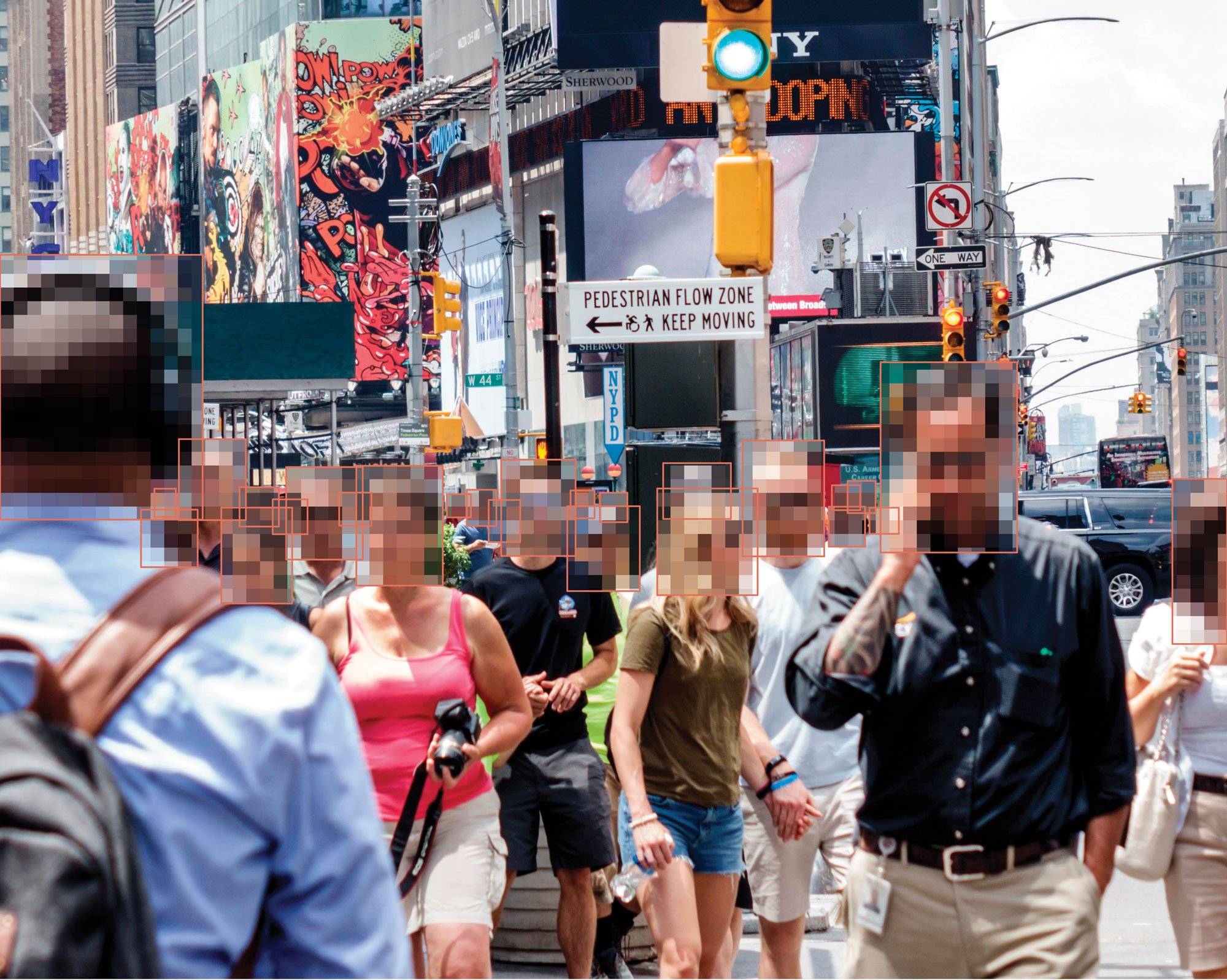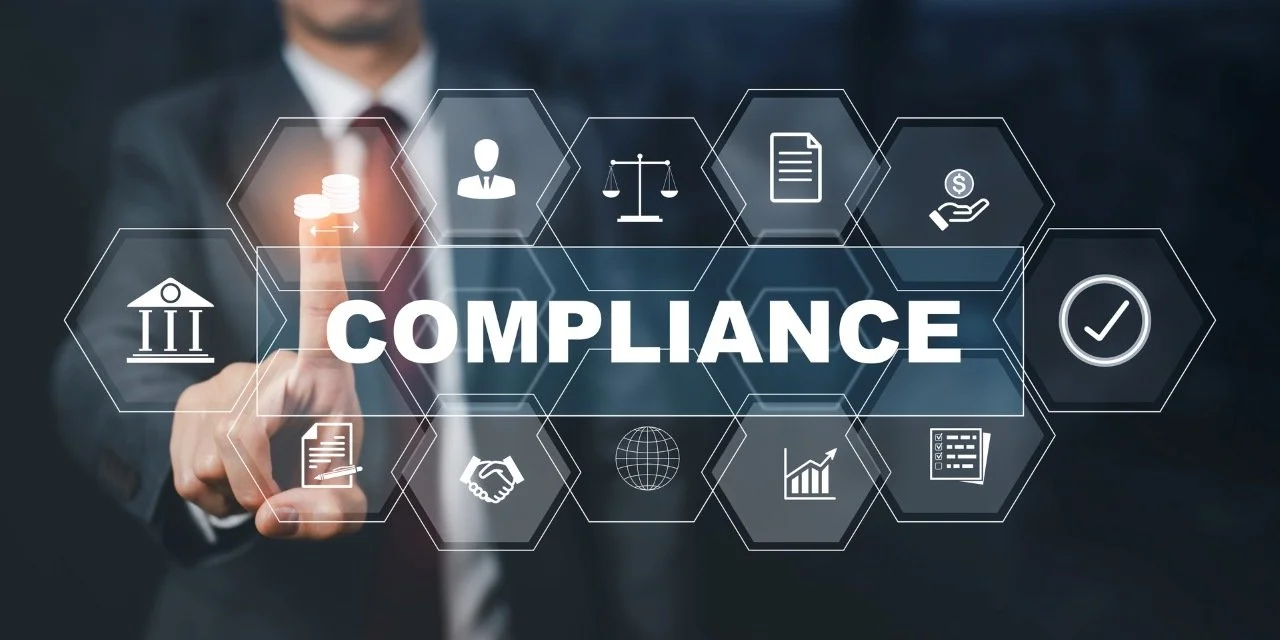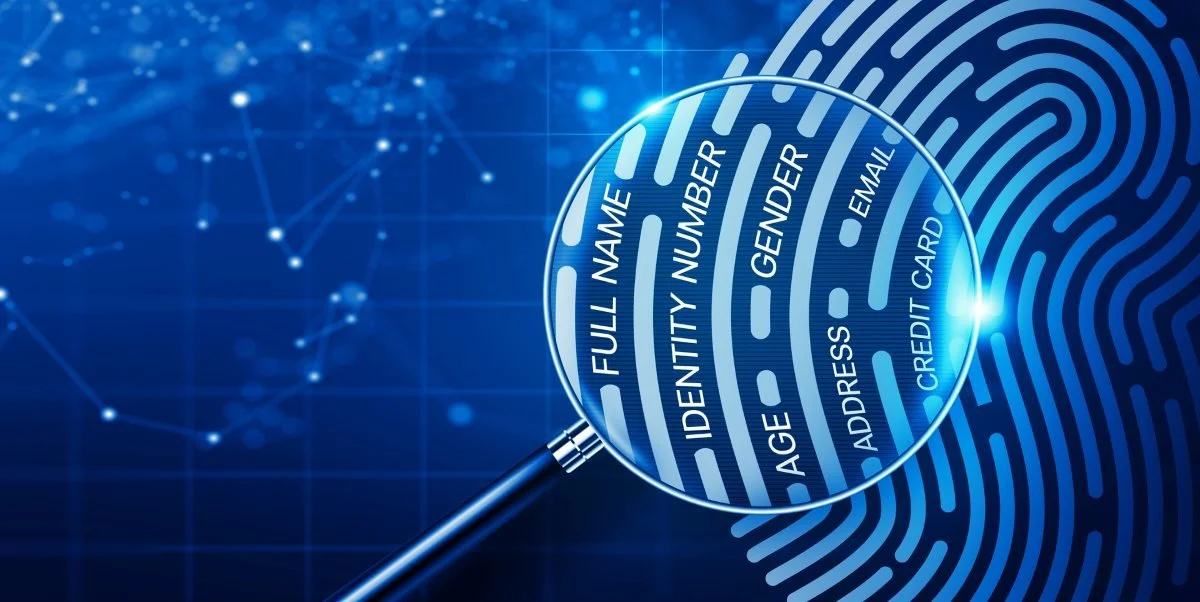
Content & Learning
Data Privacy Policy Guides
Pimloc Blog
Pimloc Newsletter
Behind the Blur series
Global Data Privacy Policy Guides
Learn what CJIS compliance means, why it matters, and how to meet CJIS compliance requirements with a practical checklist for your agency or organisation.
The UK Data Bill affects video, AI, and privacy. Learn how to balance innovation and compliance with video and audio redaction, from CCTV footage to AI analytics.
Elevate video evidence integrity with FSR Code best practices. Secure Redact helps achieve auditable digital evidence and robust data provenance against modern AI manipulation.
Avoid escalating GDPR fines. This guide explains how video and audio redaction protects high-risk data, ensuring compliance with Article 5, Article 32, and data subject rights in 2025.
Prepare for 2025's DSAR surge. This guide covers vital video and audio redaction strategies, helping you redact sensitive information from videos efficiently for robust data privacy and compliance.
Navigate US privacy legislation & AI policy affecting video/audio management. Learn compliance strategies for data privacy, redaction, and security in a fragmented landscape.
FOIA video redaction costs: A state-by-state look at US law enforcement fees for public records requests. Understand pricing factors and efficient redaction solutions.
Understand California's new race-blind charging rule and discover how Secure Redact enables compliance by automatically anonymizing faces and identifying features in video evidence, ensuring impartial review.
Navigating FERPA and video in US schools is complex. Learn about redaction requirements, parental access rights, and exceptions for law enforcement. Ensure student privacy and legal compliance.
From the groundbreaking General Data Protection Regulation (GDPR) in the European Union to the California Consumer Privacy Act (CCPA) in the United States and similar initiatives in Asia and Africa, a global tapestry of data privacy legislation has emerged.
Navigate data privacy in Asia. Learn key regulations in Singapore, Thailand, India, Japan, South Korea, & Indonesia. Compliance strategies for global businesses.
Explore the EU AI Act's implications for video technology. This article details high-risk AI classifications, biometric categorization restrictions, and the role of redaction in ensuring compliance.
Navigating FERPA & video/audio footage? Discover essential redaction strategies for schools. Protect student privacy while managing security & legal requests.
Understand HIPAA regulation for audio recording and ensure compliance with these essential guidelines to protect sensitive healthcare information.
Learn how Iowa’s Consumer Privacy Act impacts businesses across all sectors, including healthcare, education, retail and Public Safety and how it differs from other US state privacy laws.
How does Indiana’s Data Protection Act impact your business? Here’s our latest guide on all you need to know to look after your video data and comply with the ICDPA.
Learn how Texas’s CUBI Act impacts businesses handling biometric data and the steps needed for compliance in 2024.
Explore how COPPA 2.0 reshapes online privacy protections for teens, with stricter rules for platforms and businesses.
Discover how Texas’s new data privacy law impacts businesses and protects consumer rights in the digital age.
Effective from July 2024, the Oregon Consumer Data Privacy Act (OCDPA), strengthens consumer data protection, granting rights like data access, correction, and opt-out options. What do businesses need to know?
California’s Delete Act is set to significantly impact the data broker industry, with many new obligations. How will this law impact data privacy in the US?
New Hampshire has joined the growing list of US States with data protection laws, with the passage of the New Hampshire Data Protection Act (NHDPA). What do businesses need to know?
From January 2025, the Connecticut Data Privacy Act (CTDPA) is set to become enforceable. With a staggered implementation of the law’s requirements, the clock is ticking. How can businesses get in compliance today?
The EU Health Data Space creates a brand new healthcare data-sharing initiative across the European Union. With greater access to data, how will the EHDS impact healthcare research and delivery across the EU?
The Colorado AI Act is the first state-level AI governance law in the US. Targeting "high-risk" AI systems, this law aims to prevent algorithmic discrimination, with duties on both developers and deployers of AI systems.
The Colorado Privacy Act (CPA) is set to transform data handling in the state. With stringent obligations around consent and profiling, how does the law fit into the wider US data landscape?
Nebraska’s new Data Privacy Act comes into effect in 2025, establishing new rules on data processing and consumer rights. So, what do businesses need to know about the Act?
Data privacy in the US has so far been approached state-by-state, but how effective have these laws been? What are the real-world effects on consumers?
After many calls for federal privacy legislation, US lawmakers have presented the new American Privacy Rights Act (APRA). How will it impact businesses and align with global privacy standards?
The Federal Trade Commission (FTC) has committed to strengthening privacy protection by partnering with the Global CAPE. How will this affect privacy enforcement worldwide?
A-Z of our Policy Guides
Pimloc Blog
Dive into expert articles on data privacy and security and discover sector-specific guidance on balancing privacy, safety, security and video surveillance.
Discover the best redaction software in the US. Compare features, security, and compliance to choose the right tool for protecting sensitive documents efficiently.
Discover the top multi-media redaction solutions trusted by regulators. Compare features, compliance, and security to choose the right tool for your organization.
Explore the top compliance tools for PDF redaction. Review features, security standards, and workflows to help agencies protect sensitive data with confidence.
Explore leading platforms for multimodal privacy protection. Compare tools that secure video, audio, images, and documents to support compliance.
Find the best software for redacting visual and auditory PII. Explore secure, accurate tools that streamline compliance and protect sensitive data across all media.
Discover top tools for redacting video, audio, and images at once. Explore secure, efficient solutions built to streamline your media redaction workflow.
Discover the best compliance tools for redacting any media type. Learn how to secure video, audio, images, and documents while meeting strict privacy requirements.
Find the top FOIA-compliant video redaction systems for agencies. Compare automation, accuracy, and security to choose the best tool for compliant workflows.
Discover emerging trends shaping the future of AI and on-device redaction, from edge computing to privacy-first automation, driving smarter, faster compliance.
Discover effective ways to strengthen chain of custody in automated video redaction workflows to ensure compliance, security, and evidential integrity every step.
Explore key legal challenges of handling audio under FOIA and learn solutions to stay compliant, protect privacy, and streamline redaction workflows effectively.
Discover the top use cases for redaction APIs in law enforcement and government, from automating evidence review to ensuring data privacy and compliance.
Explore the top reasons developers love redaction APIs, from faster integration and scalability to simplified compliance and automation across complex workflows.
Discover how automated redaction streamlines FOIA video requests by saving time, reducing manual effort, and improving accuracy in data protection and compliance.
Discover what enterprise-ready video redaction platforms do right and where they fail. Learn how Secure Redact delivers performance built for modern SaaS needs.
Discover the top benefits of using Secure Redact for CCTV redaction. Enhance privacy, save time, and stay compliant with AI-powered tool that simplify redaction.
Explore the ultimate features to look for in Secure Redact software. Enhance compliance, streamline workflows, and protect sensitive data with advanced tools.
Discover how to implement Secure Redact in police departments with ease. Improve compliance, protect privacy, and streamline video redaction workflows.
See how Secure Redact stands out from competing redaction solutions with unmatched accuracy, speed, compliance support, and simple user-friendly tools.
Discover the key features to look for in SaaS video redaction tools, from AI accuracy to compliance, ensuring secure and efficient data protection.
Learn how automated video redaction software transforms CCTV compliance by protecting privacy, meeting regulations, and streamlining security workflows.
Explore the best video redaction tools for law enforcement. Compare features, AI accuracy, and compliance to find the right solution for your agency.
Discover the top video redaction software companies. Compare tools, features, and benefits to choose the right solution for secure and compliant video use.
Explore 7 automated redaction software options protecting police bodycam footage. Compare features to find the best tools for security and compliance.
Blur scene text in video for privacy. Our guide covers redacting text in video, redacting house numbers in video, and blurring screens in video for a complete redaction strategy.
Learn the best way to blur faces in videos and images with an app. Our guide to blurring faces in videos covers how to get a blurred face and blur video for privacy and compliance.
Learn how to blur a face in a picture within a data lifecycle. Our guide on image blur and image pixelator techniques helps you anonymize and pixelate photos for security and compliance.
Image blur for compliance. Our guide covers how to blur a picture, the importance of anonymization, and how to pixelate and protect images in public safety and insurance.
Learn how to blur a face in a photo and pixelate a photo with AI-powered tools. Our guide covers image blur and image pixelator techniques for data privacy and compliance.
Discover why audio redaction is essential for insurance call recordings. Learn how to protect customer privacy and ensure compliance with automated redaction software.
A-Z of our blogs
Artificial Intelligence (AI)
Attitudes towards AI: there remains a lack of trust and general awareness from consumers
Leveraging facial recognition technology: compliance, ethics, and business opportunities
The evolution of generative AI: the balance between innovation and privacy
The global AI regulation race: a world transformed by technology
The liar’s dividend: how are deepfakes impacting the justice system?
Education
Tackling video DSARs in schools: Protect children’s data
Beyond compliance: Best practices for video redaction in schools
Can AI-enabled surveillance be the tool to tackle gun violence in schools?
Eye on education: what are the implications of rising surveillance in US schools?
Protecting privacy in the classroom: How to redact sensitive information from videos
The Tug-of-War between access and privacy: FERPA, FOIA, and security video in US school districts
Healthcare
Handling NHS video DSARs: a quick and easy guide to protecting patient and practitioner data
Can the NHS pursue a balanced approach to video monitoring in healthcare?
Cloud migration: why is the UK healthcare industry falling behind?
Digital Healthcare: overcoming privacy and security challenges in a post-pandemic era
The data-driven revolution in US healthcare: trends and challenges in health data
Videoing clinical trials: how to balance US HIPAA vs. visual data sharing
Using video in clinical trials: Protecting participant privacy in a visual era
Using video and audio in Healthcare: Essential privacy best practices
Why is data privacy in eHealth and telemedicine so important?
When your health data isn’t private: a deep dive into the world of data brokers
Who gets to see healthcare body-worn camera footage in the US?
Insurance
AI in Insurance: The digital revolution of claims processing
Beyond the visual: why audio redaction is now essential for the Insurance industry
Deepfake deception: GenAI’s impact on trust in Insurance multimedia
Ethical AI in Insurance: The imperative of responsible AI and privacy by design
From footage to fast claims processing: How redaction is reshaping Insurance
Shielding trust: video redaction as a cornerstone of Insurance data security
Smarter claims, stronger integrity: AI-powered multimedia in Insurance
Streamlining insurance claims with Digital evidence management
The mobile-first revolution: Essential technologies for the modern insurer
The trust factor: How insurers safeguard data with video redaction
Trust secured: redaction solutions for modern Insurance firms
Video redaction: Fortifying privacy and trust in the Insurance world
Why video redaction is foundational for the Insurance sector
Law Enforcement
Automatic licence plate scanners: the good, the bad, the challenging
Body-worn cameras in US law enforcement: balancing accountability and privacy
Detroit’s new facial recognition policies: a potential model for the nation?
Facial recognition in law enforcement: privacy, ethics and innovation
Forensic Science: From wet lab to digital files – the evolution of evidence
Static to mobile: how drones are transforming video surveillance for US law enforcement
The balance of police surveillance, data management and public trust in the USA
The future of biometric technology in UK public safety: what are the current takeaways?
What is the future of AI-enhanced video evidence in the US legal system?
What role does video surveillance play in US community policing?
Retail
Are body-worn cameras the antidote to surging retail violence?
Empowering the digital retailer: The ROI of anonymization in a data-driven world
Retail shrinkage and staff abuse - is more video surveillance the answer?
Revolutionising retail: the power of CCTV and video analytics
Video and Security
A simple step-by-step on how to tackle video DSARs
Is biometric age-assurance technology the future or a logistical nightmare?
Privacy concerns and mistrust towards video surveillance and facial recognition technology
Video collection in US smart cities: can privacy come first?
What are the current challenges in the UK video surveillance and biometric regulatory landscape?
2024’s top video privacy and security trends: a new frontier of digital safety
2023: AI, analytics, and accountability: video and data privacy trends we can anticipate
Transport
Tackling video DSARs in the transport sector: a simple guide using Secure Redact
Data on wheels: the global potential of emerging tech in transport
Responsibly implementing video analytics in the transportation sector
A guide to video surveillance in the US Transportation sector
Construction, Warehousing and Manufacturing
Smart video in warehousing: how to reap the rewards while keeping employee data safe
Navigating video surveillance and worker trust in US Construction
Other
Pimloc Newsletter
The latest video privacy, surveillance, AI and security news from across the globe. Sign up now.
X faces 9 GDPR complaints for training AI on EU data without consent, Columbus, Ohio police officers sue city over data breach, and Germany proposes bill allowing police to use facial recognition to identify terrorists.
A global IT outage impacts millions, Meta agrees to landmark $1.4 billion settlement over facial recognition violations, and US Senate passes COPPA 2.0 and Kids Online Safety Act.
AT&T data breaches affect millions, AI cameras are being used to curb e-scooter misuse in Melbourne, and autonomous vehicles in California raise privacy concerns.
Burglars in California are using secret cameras, Detroit police to adopt limits on facial recognition following a lawsuit, and Texas educators suffer a large-scale data breach.
Meta pauses AI training amid regulatory criticism, New York passes bill to combat addictive social media feeds for minors, and AI surveillance trials in UK train stations spark privacy criticism.
AI voice-cloning is threatening democracy, says a recent study, Facewatch is sued for a wrongful facial recognition match in the UK, and a Ticketmaster data breach exposes the data of millions of customers.
A proposed Missouri law is set to allow biometric age-verification for alcohol, the UK Conservative party self-reports to ICO over data breach, and deepfakes are having a major impact on the Indian elections.
Isle of Man schools ordered to turn off CCTV in toilets amid privacy concerns, Columbia city officials consider automatic body-worn cameras for law enforcement, and US Senators introduce AI security legislation to address emerging threats.
Target faces a class-action lawsuit over BIPA violation, the UK government plans to ban non-consensual sexual deepfake images, and the EU Data Protection Board rules against Meta’s “consent or pay” model.
US lawmakers introduce the American Privacy Rights Act, Temu promotional offer sparks data privacy concerns, and Oakland plans to install 480 new surveillance cameras to tackle crime.
The ICO launches an investigation into the Princess of Wales' health breach, the EU Parliament has passed the EU AI Act and the US Department of Transport is set to launch the first privacy review of US airlines.
Canadian Supreme Court rules on police warrants for IP addresses, Airbnb bans indoor surveillance cameras and security researchers develop an “AI worm” to exploit vulnerabilities in generative AI systems.
The EU opens a Digital Services Act probe into TikTok, an Ohio judge rules privacy law clashes with the First Amendment and Google pauses the use of generative AI chatbot due to inaccuracy criticisms.
Amazon's Ring to end police access to doorbell footage, NSA accused of acquiring Internet data without warrants and Biden administration to launch first AI Safety Consortium.
Amazon penalised for excessive employee monitoring, Australia to call for watermarking AI-generated content and US Senators call for DOJ to investigate whether facial recognition violates civil rights.
UK surveillance law updates spark controversy, Florida lawmakers look to ban children from social media and TikTok to be investigated by Australian ICO.
Bill introduced to stop TSA facial recognition use, Meta announces end-to-end encryption, and surveillance fears over climate talk.
Canadian government suffers large-scale data breach, UK House of Lords introduces AI legislation and malware and vulnerabilities found on children's tablets.
US lawmakers look to reform surveillance law, CDC to expand airport surveillance and UK Biobank accused of sharing health data with insurers.
Biden issues executive order on AI, PimEyes prevents children from being searched and 23andme suffers data breach.
ICO warns over employee monitoring, California passes Delete Act and Kensington and Chelsea trial new surveillance software.
Uber Eats delivery bot shares video footage without consent, ICO warns about data mismanagement for abuse victims and UK passes Online Safety Bill.
X to start collecting biometric data, Call of Duty to use AI to combat hate speech and NYPD faces backlash for drone use.
Northern Ireland police force suffers data breach, ICO releases guidance on biometric data and California uses AI cameras for wildfire prevention.
California reviews data collection practices for connected vehicles, Worldcoin faces privacy setbacks and Indian parliament resurfaces data protection bill.
France's new Reform Bill allows remote surveillance of suspected criminals' devices, Met Police shared sensitive crime-reporting data, and more.
FCC establishes new data protection task force, ICO warns not to rush on generative AI and Nigeria signs data protection bill.
AI surveillance is being used in US public housing, US and UK commit to a data flow agreement and Ring was fined by FTC for privacy violation.
Call for CCTV in Hong Kong schools, Texas Senate passes data privacy act and Australian Northern Territory government suffers major data breach.
WhatsApp bug recorded conversations without knowledge, UK government considers FRT in police body-worn cameras and AI decoder translates brain activity into text.
Pimloc: Behind the blur
First to answer: why is privacy an asset? is our CEO, Simon Randall.
This is our new mini-interview series to understand more from privacy and security professionals within all industries. Follow us on Linkedin for all the latest updates.
We're kicking off with one key question: Why is privacy an asset?
Learn from Karima Noren, co-founder of the Privacy Compliance Hub, on why privacy is an asset.


























































































